Budget 2024: Treasurer Jim Chalmers pours billions into Labor fight on the home front
Anthony Albanese and Jim Chalmers will throw another $11.3bn into the housing shortage crisis, despite the Treasurer casting doubt on being able to deliver 1.2m new homes by 2029.
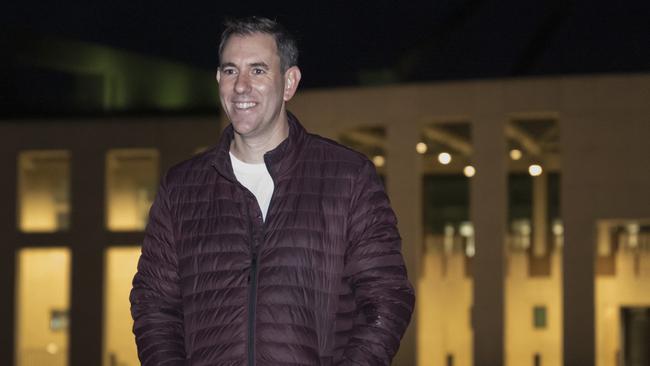
Anthony Albanese and Jim Chalmers will throw another $11.3bn into the housing shortage crisis in next Tuesday’s budget, despite the Treasurer casting doubt on the government’s ability to deliver its signature pledge of 1.2 million new homes by 2029.
With cost-of-living and housing sharpening as the defining economic and political contests ahead of the next election, the Prime Minister on Friday increased overall housing budget support to $36.3bn following a national cabinet meeting.
The three funding boosts include $9.3bn for a new five-year social housing and homelessness agreement, $1bn supporting crisis and transitional accommodation for women and children fleeing domestic violence and $1bn to help states and territories build homes sooner.
National cabinet leaders will also develop regulations forcing universities to increase purpose-built accommodation for international and domestic students.
In an interview with The Weekend Australian, Dr Chalmers said cost-of-living relief and housing would be centrepieces of next week’s budget but conceded the 1.2 million target would be difficult to achieve, without better co-operation from state and territory governments and more tradies in the construction sector.
“It’s a really ambitious target. It will be difficult but it is achievable and possible, but only if we continue to invest, the states and territories continue to do their bit and we continue to invest in the workforce that’s going to build these homes,” Dr Chalmers said.
“It’s about making sure we’re getting maximum value out of the $25bn we’re investing in 17 different ways already, combined with some new initiatives which recognise that we won’t get that 1.2 million homes unless the commonwealth plays a big role, and we’re prepared to. States and territories need to do their bit. And we need to have the workforce too and that’s why we announced those 20,000 fee-free (TAFE) opportunities because we need the builders and construction workers to get this job done.”
Mr Albanese said “this budget means more tradies, fewer barriers to construction, less talk and more homes”.
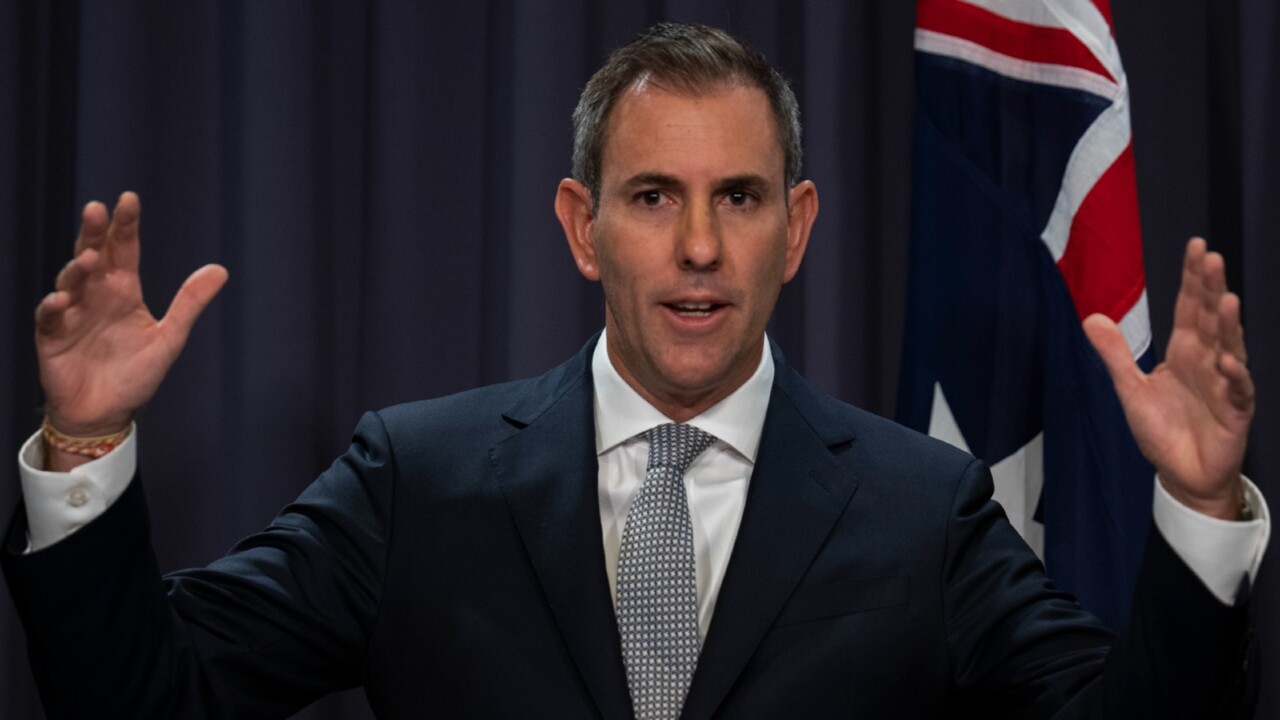
The bulk of the government funding is being funnelled into social and affordable housing.
“We are encouraging states and territories to kickstart building by providing an extra $1bn to help fund the roads and services new homes need,” the Prime Minister said. “This isn’t about one suburb or one city or one state. It’s a challenge facing Australians everywhere and it needs action from every level of government.”
As construction industry chiefs warn that the 1.2 million target is increasingly unachievable given severe labour shortages, higher costs, red tape and Labor’s industrial relations changes, Dr Chalmers pushed back against criticism that high migration was intensifying the housing crisis.
The 46-year-old, who is expected to hike Commonwealth Rent Assistance again after increasing it by 15 per cent last year at a cost of $2.7bn, said the budget would forecast a halving in net overseas migration next year.
While acknowledging inflation was the burning issue in the near-term, Dr Chalmers also effectively ruled out further tax reform to address bracket creep for workers despite the fall in living standards continuing to erode the household balance sheet.
Facing pressure from the Reserve Bank, economists and the Coalition over the inflationary impacts of Labor’s structural spending and Future Made in Australia funding, Dr Chalmers said the front-end of budget expenditure was responsibly focused on lowering inflation.
After the RBA this week upgraded its inflation forecast to 3.8 per cent in June, Dr Chalmers said Treasury’s consumer price index forecasts would differ from the central bank’s.
“The difference between the RBA’s forecasts and our (Treasury) forecasts will be that our forecasts can take the budget into consideration,” he said. “So you shouldn’t expect them to be identical, but for a very good reason, which is the timing is different.
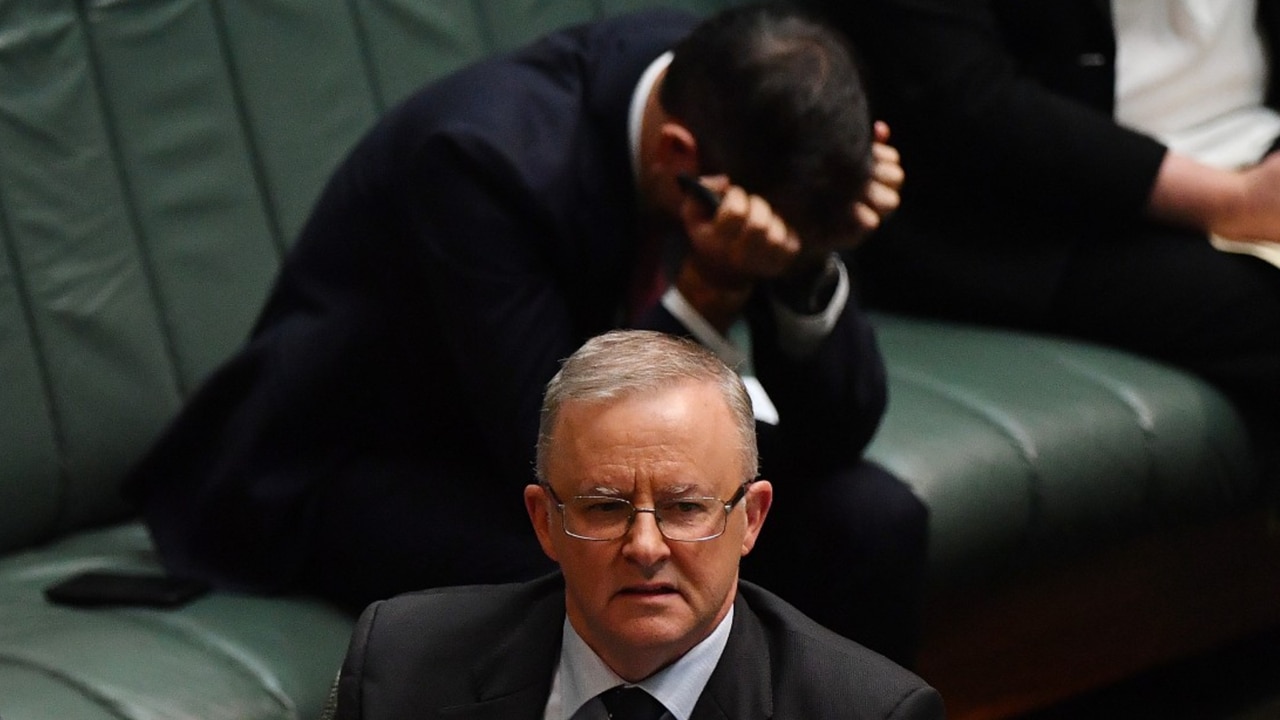
“What you’ll see in the budget is even when there is some extra spending in the second year for example, that is overwhelmingly things like extending health programs and providing cost-of-living relief.
“Spending restraint is a defining feature of the budget. We know we need steady hands and hard heads. We need to get on top of this inflation challenge without smashing the economy. And spending restraint, particularly this year, has a role to play.”
With Treasury forecasting deepening deficits over the next four years following an expected second surplus, Dr Chalmers acknowledged there were “some complex, longer-term challenges in our tax base”.
“I believe it’s best to work through them in a considered and methodical way,” he said. “We have done and are doing a heap of tax reform already.”
Facing attacks from the Coalition over soaring post-pandemic migration levels, Dr Chalmers said: “Our housing supply challenge has been much longer standing than the recent (migration) spike … so we need some perspective there”.
Amid a rental crisis being weaponised politically by Greens leader Adam Bandt, Dr Chalmers said the “best way to solve rents which are too high is to build more homes”.
“Cost-of-living and housing are two of the burning issues in the community and around the country and they are two of the central features of the budget,” he said. “And that is for good economic reasons, not political reasons. The budget is about the economic cycle, not the political cycle.
“Net overseas migration will come off substantially. It has been higher than our predecessors anticipated during Covid because the students and long-term tourists came back quicker.
“We acknowledge that we have to manage the pressures in our communities but net overseas migration is not the primary reason for the challenges in our economy.”
Despite warnings that the government’s tax cuts would not fully shield frontline workers and aspirational Australians from bracket creep over a decade, Dr Chalmers said Labor was not contemplating another round of income tax reform. Declaring that Labor’s stage three tax cuts would be the “foundation stone of our cost-of-living relief in the budget”, the Queensland MP said Treasury analysis next week would show how the government’s changes had put more cash into pockets. “Because of our tax changes, income growth becomes the big driver of increased personal income taxes,” he said. “The budget will make it clear that we are returning a substantial amount of bracket creep, that’s a good thing.
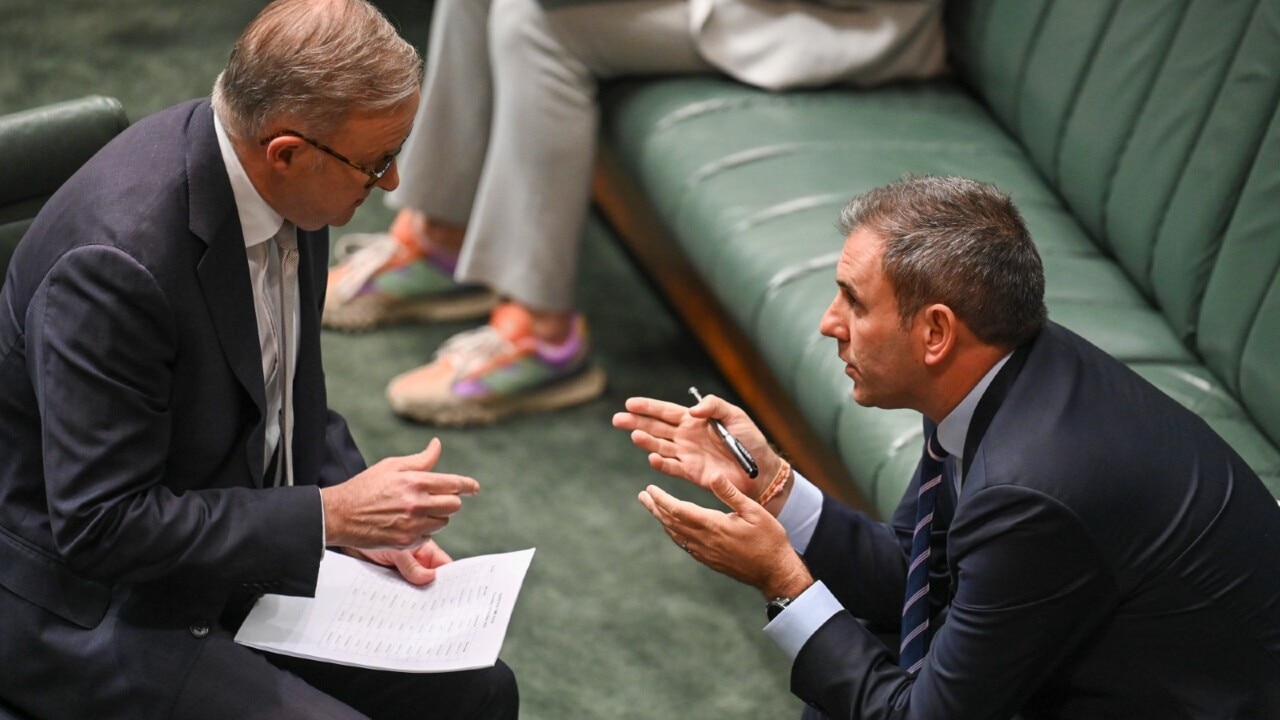
“It’s entirely within the gift of future governments of either political persuasion if and when they want to return more bracket creep. We’re not contemplating another round … we want to bed down these income tax changes. We haven’t been drawing up an immediate, additional $107bn worth of tax cuts for this budget.
“But there will be a tax cut for every taxpayer from July that will return bracket creep in a way that is better for labour supply and better for Middle Australia and we’re really proud of it.”
After the Coalition backed down on threats to block Labor’s shake-up of the Morrison government’s stage three tax cuts, The Australian revealed Peter Dutton and his Treasury spokesman Angus Taylor were developing a 2025 economic election manifesto that would combat bracket creep while delivering a better budget bottom line.
Asked about the spectre of a tax-and-spend election brawl with the Coalition, Dr Chalmers said: “There’s more than one way to return bracket creep and our way is better. The Coalition is committed to reinstating the parts of the old stage three that we’re not implementing. And so Angus (Taylor) needs to tell us where he’ll find that $40bn. There’s a whole bunch of homework he hasn’t handed in yet.
“Their nuclear policy is supposed to be out by now, their supermarket divestment, we don’t know what they think about tax. They say they’ll spend more on Defence but haven’t said how they’ll pay for it. They’re headed for a real car crash in (Peter Dutton’s) budget reply next week. But that’s their problem.”
Mr Dutton’s budget reply speech next Thursday is expected to announce key pillars of the Coalition election housing policy, including allowing Australians to use their superannuation to purchase a home.
Amid a political contest over national security and public safety, the Albanese government will ramp up budget funding for frontline agencies including Australian Border Force, Defence, ASIO and the Australian Federal Police.
Asked if Tuesday’s budget would be his last before the scheduled 2025 poll, Dr Chalmers said “you have to ask the guy (Albanese) that works around the corner about that”.




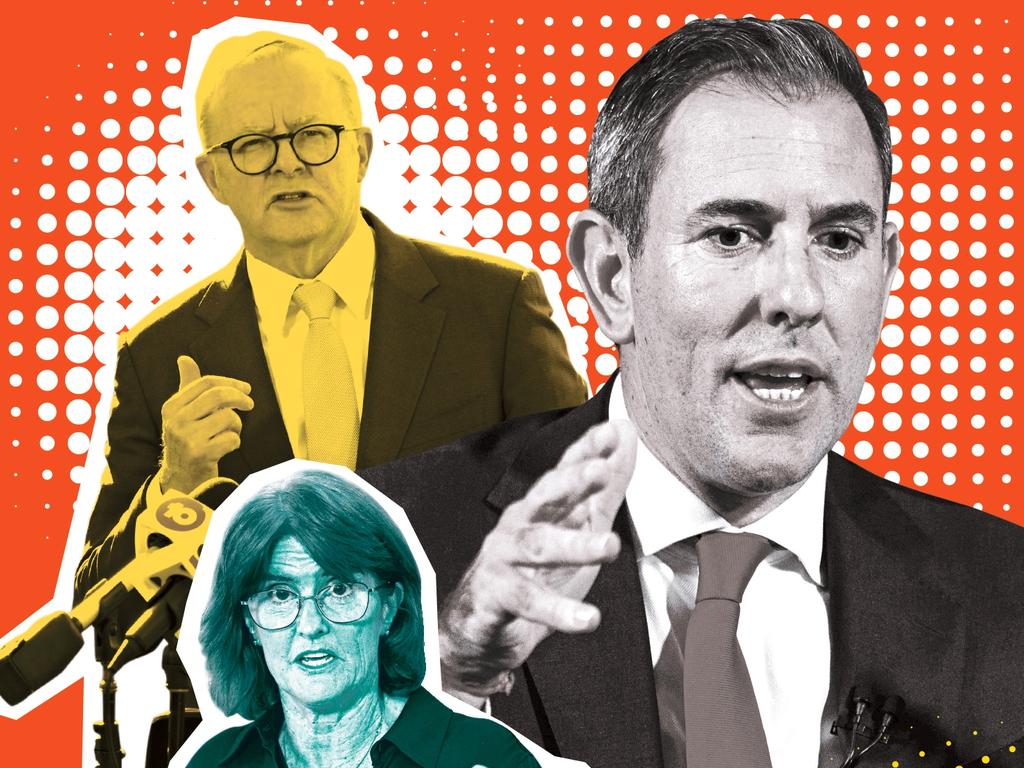


To join the conversation, please log in. Don't have an account? Register
Join the conversation, you are commenting as Logout